Some language used in this article was historically widespread but is highly problematic today and does not reflect present-day usage or opinion.
In December 2024, the Middle Temple Disability Forum held a launch event and celebration, as part of which the Archive & Collections Department took a deeper look into the Archives to discover more about the histories of disabled members and staff at the Inn.
The story of the Middle Temple would be incomplete without including the contributions made by members, staff and residents of the Inn who are and were disabled people. However, one challenge for the researcher when seeking to discover and highlight these stories is that, in many cases, the archival evidence for a member’s disability often only appears in correspondence with the Inn and its officers, sometimes in situations where the member is seeking to withdraw from participation in the Inn, or seeking dispensation, because of their disability.
Another challenge is the considerable variation in the language around disability over the centuries, making it challenging to identify the correct words and phrases with which to search catalogues or indices. The appropriate term can often be historically widespread terminology, but today it is highly problematic. Such terms do appear in this article, but where they do, it is made clear that these are quotations which do not reflect present-day usage or views.
Petitions for Support
With the absence of a robust system of state support for people with disabilities for much of the Inn’s history, many members of the Middle Temple, its staff and their families wrote to the Inn’s authorities seeking support in different forms, often in situations where disability had left them unable to work.
One example of this is from 1812, when Edmund Watford, who had been a watchman of the society for over 25 years, wrote to the Inn regarding a ‘paralytic attack’ which had deprived him of the use of one side of his body and seeking financial support from the Inn.
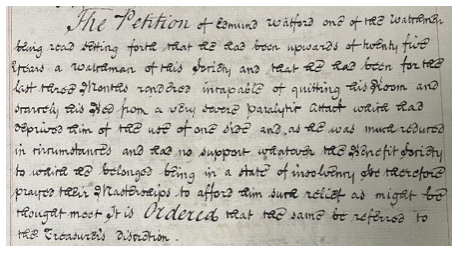
Similarly, in April 1863, 24 barristers petitioned the Middle Temple stating that a Mr Hislop Clarke was ‘suffering from a severe mental illness’ and therefore was no longer able to support himself through practising. They requested that the society consider his circumstances and grant him some relief.
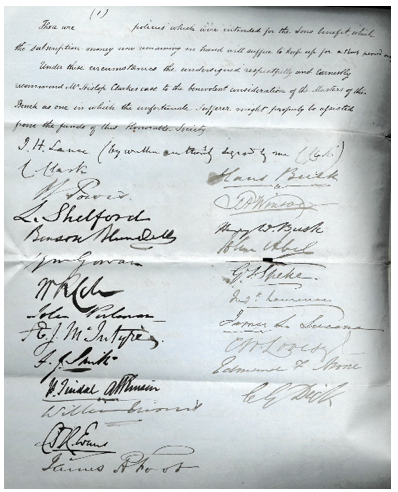
It was not just financial relief for which the Inn was petitioned. In 1919, George Bannerman Kellagher petitioned the Inn for a dispensation from dining requirements as he was still ‘an officer of HM Forces and partially disabled’ and that he expected to undergo a major operation within the following year. The Inn granted this petition.
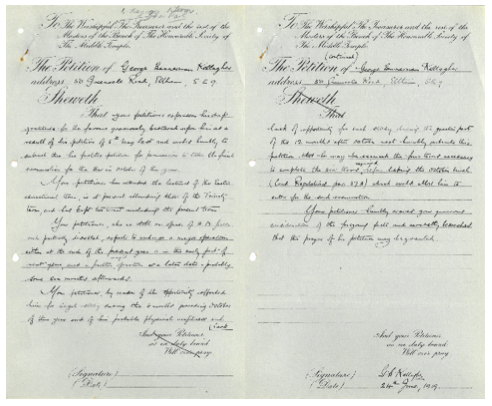
Withdrawals and Resignations
Members of the Middle Temple with disabilities have not always found it possible to continue with legal studies or practice, or to take on senior offices such as Bencher, Reader or Treasurer. Various records survive of those members writing to the Inn to resign from a position or withdraw from membership entirely.
In 1674, Reader Robert Stephens was allowed to dispense with the duty of Reading at the Inn, owing to his being disabled by ‘infirmity of the body.’ It was noted that this would prevent him from ‘performing the exercise with the decorum requisite for such a solemnity.’
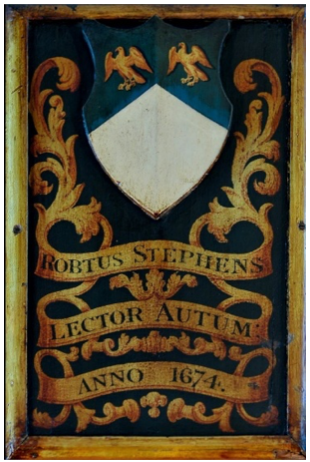
Some members withdrew from election to senior office, such as J. Cowslad, who, in 1708, wrote to the Inn stating that he had paid all his duties to the House, but asked that, as a ‘cripple’, he could be excused from being Called to the Bench. Cowslad states he was not capable of this role but that he would have accepted the honour if he were capable.
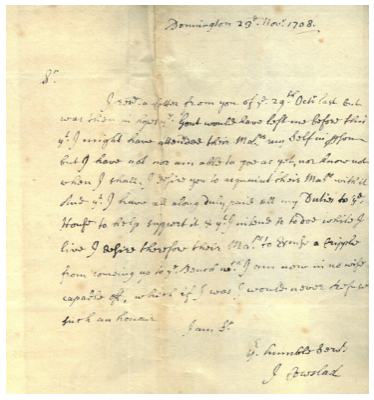
Members of the Inn also wrote to resign from their positions as members of the organisation. For example, in 1918, Lord Lindley wrote to the Inn asking to withdraw that he was now nearly 90, he was partially blind and deaf, and unlikely to come to London again. 21 years later, member William Cahill petitioned to withdraw from the Inn due to ‘disability in his eyesight’, which he stated prohibited any chances of him being able to come to London soon. The petition was granted by the Inn and his deposit on application to the Inn was returned.
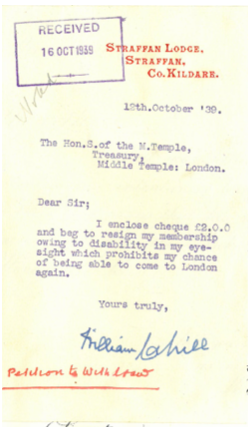
Notable Disabled Members and Staff of the Temple.
John Stanley (1712-1786) Temple Church Organist
While not a member of the Inn, Stanley was a renowned organist who Inner Temple appointed to play at Temple Church, which he did from 1734 until his death. He attracted the attention of George Frideric Handel, who regularly visited Temple Church to hear Stanley play.
At the age of two, Stanley fell on a marble hearth with a China basin in his hand, which left him virtually blind. It was his excellent memory which allowed him to direct and compose music, assisted by his sister-in-law, who became his copyist.
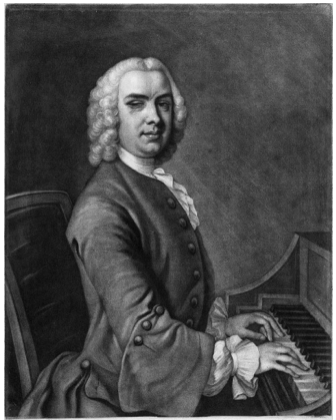
Henry Duqueruy (c.1750-1804) Admitted: 1769, Called: 1774 (Irish Bar)
Duqueruy was a leading Irish barrister, becoming King’s Counsel in 1779. As a barrister, he was renowned for his forensic skill and eloquence and for being a fine orator. He did, however, cause a stir in 1795, while serving as an MP and at the height of the French Revolutionary War, he suggested the possibility of a peace treaty with France.
Duqueruy’s career was cut short by serious mental health issues in 1793 (referred to at the time as ‘sunstroke’). The precise medical nature of his illness is not known but it eventually led to the ‘deprivation of his intellect’. While Duqueruy resigned from the office of Serjeant-at-law, he was still able to practice at the Bar and attend the House of Commons for some time.
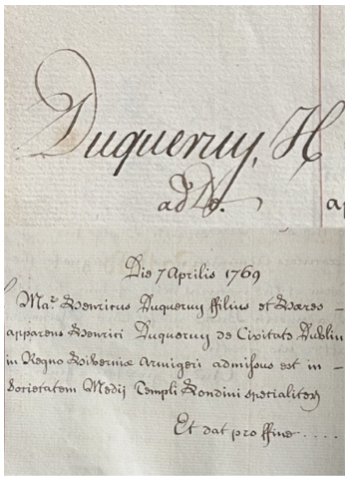
Richard Pennefather (1773-1859) Admitted: 1792, Called: 1795 (Irish Bar)
Pennefather was a prominent Irish Judge, made King’s Counsel in 1816 and appointed Baron of the Court of Exchequer (Ireland) in 1816. He is most noted for his impartial conduct of the politically sensitive Doneraile Conspiracy Trials of 1829.
Pennefather suffered from sight loss, which began affecting him from the mid-1830s, often requiring his son to read to him. By 1855, he had lost all sight, leading to a House of Commons inquiry alleging his incapacity, but an eloquent tribute to Pennefather’s ability by the Irish Bar led to the matter being dropped, and he continued to serve up until his death.
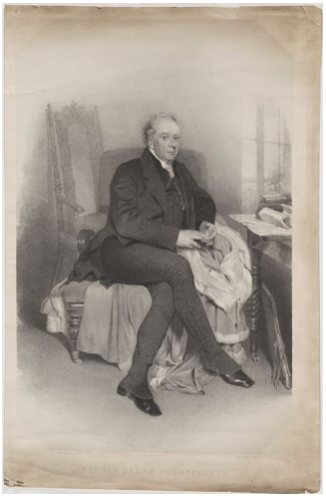
Anthony Babington (1920-2004) Admitted: 1930, Called: 1948
Babington was made a Bencher of Middle Temple in 1977. In 1995, he was made an Honorary Bencher of King’s Inns in Dublin. He also had a career as a writer, producing books that significantly influenced the way people thought about issues of alleged cowardice and desertion.
Babington was seriously injured in 1944 during the Second World War. It was believed he would never be able to walk or talk again, but whilst recuperating, he was able to relearn to speak and write and eventually walk. Babington took his Bar examinations using an amanuensis from the Bar Council, who sat at his bedside in hospital, taking his answers to questions.
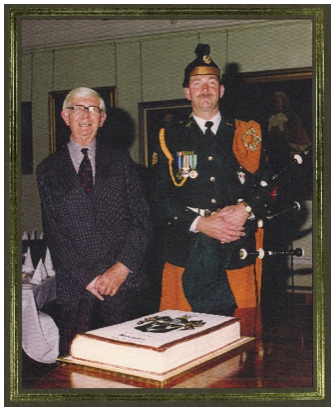
Conclusion
Whilst recognising there are certain limitations when researching disabled members, many interesting stories and insights can be found through the archive records when searching the collection.

Francesca qualified as an archivist at the University of Glasgow in 2019, joining the Inn’s Archive Department later that year as Project Archivist, progressing to Assistant Archivist in 2021. She works on a variety of different projects, including the preservation of the Inn’s digital records.

